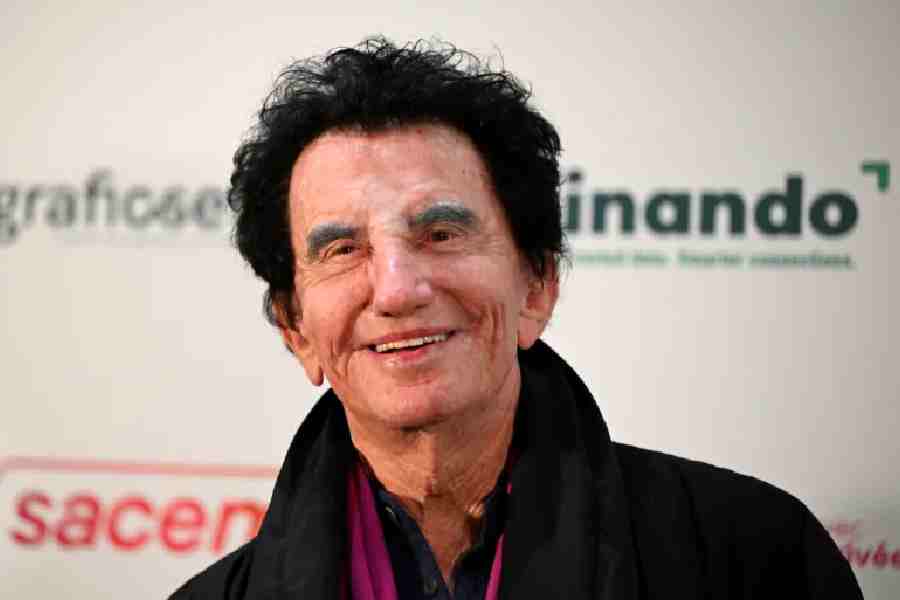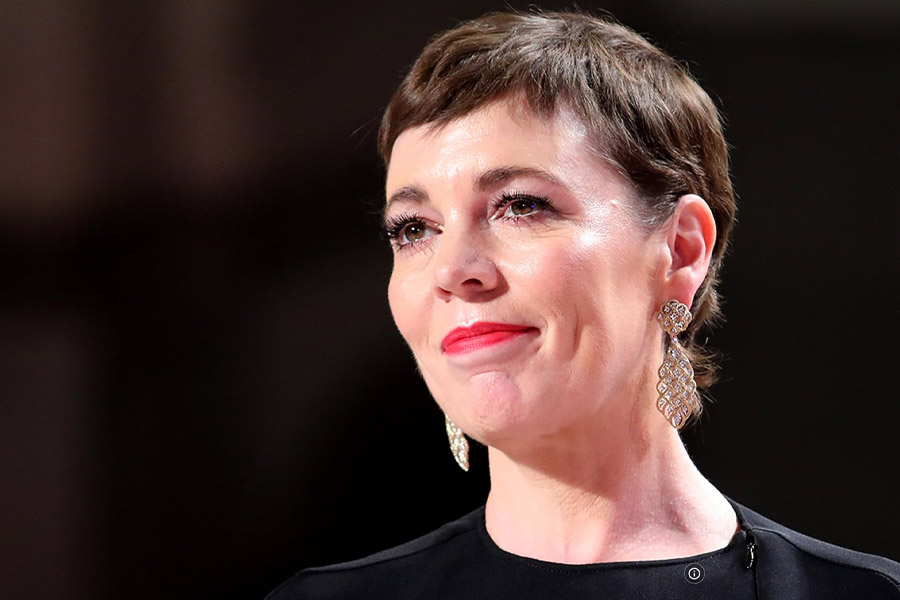 |
| Students attend a career counselling workshop at the Institute of Higher Secondary Education. (Below) Legal luminaries at an international seminar held at KIIT University in Bhubaneswar. Telegraph picture |
 |
From dance glory to job options
Orissa’s famed Prince Dance Group, champions of the first edition of television show, India’s Got Talent in 2009, and emerging dancer Harihar Dash, who captivated audiences all over the country in the show’s second season, were felicitated by the Siksha O Anusandhan University, Bhubaneswar, on April 29. Prince Dance Group, led by choreographer T. Krishna Gopal Reddy, and Harihar and his troupe were honoured after they performed at “Impulse-2011”, the annual function of the Institute of Medical Science (IMS), held at the university stadium. They were presented with citations, mementoes and shawl by the university’s chancellor, Khageswar Pradhan. The Berhampur-based dance group performed to the cheers of the crowd and their show included the repeat performance of Sare Jahan Se Achha, which had taken the country by storm during the talent hunt. On the other hand, Harihar, who bagged an advertisement with a top telecom network soon after the contest, entertained the audience with his signature popping and locking dance style. Students of IMS, the faculty of medicine of the university, also showcased their talent in dance and music after the festivities began with fireworks. Vice-chancellor of the university S.C. Mishra, managing member Gopabandhu Kar, dean D.K. Roy and medical superintendent B.N. Panda were present along with faculties and doctors at the Sum Hospital, IMS.
Annual convocation
The Institute of Management Bhubaneswar (IMB) observed its 14th annual convocation on April 23 where degrees were conferred on 81 students. On this occasion, chief guest Malaya Chatterjee, CMD, HSCL, Calcutta and guest of honour, Chintamani Mohapatra, head of the School of International Studies, JNU, Delhi, gave away the certificates and medals to the graduating students. Mohapatra highlighted the importance of work culture and ethics in day-to-day life and advised the students to hone their communication skills and strive for excellence. Director of the institute, Sumanta Kumar Nayak, read out the annual report and mentioned the achievements of the students in various fields including research and consultancy. IMB chairman Arya Pattnaik also attended the function and congratulated the students.
 |
| The Prince Dance Group of Berhampur performs at the annual function of Institute of Medical Science. (Below) Dancer Harihar Dash performs at the event. Telegraph pictures |
 |
Career workshop
A career-counselling workshop was organised at the SoA University’s Plus Two science college Institute of Higher Secondary Education (IHSE), Bhubaneswar, on April 28. Saroj Patro, an Oriya entrepreneur who runs a shipping company in Mumbai, had been invited to the workshop to motivate the students and offer tips on choosing the right career. “In India we are not encouraged to dream but strive for a career with an eye on the pay packet. But my advice to you is not to worry about making a living,” said Patro, referring to the Aamir Khan-starrer 3 Idiots. Jobs, he said, would not be a problem in the future as India’s economy had been growing at a healthy rate. “However, though everybody wants to become an engineer, doctor or a professional, no one wants to be a good human being, which is more important,” Patro remarked. Speaking about career options in marine engineering and the shipping industry, he said it provided a lucrative career for boys who have a good physique. Patro said officers in the Merchant Navy also had the opportunity to enter the civil services after quitting the profession and added that Indians were much sought after by shipping companies as seafarers worldwide. Jyotirmoy Mohapatra, dean of the Institute of Business and Computer Studies (IBCS), and principal, IHSE, R.N. Panda, also addressed the students during the workshop.
150 years of IPC
A galaxy of national and international legal luminaries came together to celebrate 150 years of Indian Penal Code (IPC) at KIIT University May 1. Justice A.K. Patnaik, judge, Supreme Court of India, inaugurated an international seminar on the subject organised by KIIT School of Law in association with British Council-India, where Lord Nicholas Addison Phillips, president (chief justice) of the Supreme Court of United Kingdom, was the chief guest. Lord Anthony Peter Clarke, justice of the Supreme Court of UK, B.P. Das, judge, Orissa High Court, Fali S. Nariman and Pinki Anand, senior advocates of Supreme Court of India, Martin Hunter, emeritus professor, Nottingham Trent University, UK and Rob Lynes, director, British Council-India were among those who graced the occasion. IPC, which was enacted in 1860, has withstood several challenges in the Supreme Court after the Indian Constitution came into effect in 1950, said Justice Patnaik. Indian lawyers and judges have done a commendable job in interpreting it, he pointed out. Lord Phillips emphasised that objective of punishment should be to bring about moral reform in criminals. Comparing British and Indian criminal justice systems, he said unlike India, criminal law in UK is not set out in a single code, resulting in confusion among public and even lawyers and judges. “It is amazing that IPC has survived 150 years, and credit for this goes to Lord Macaulay, who must have closely studied Indian society while drafting it,” he said. Even though IPC has been adapted from time to time to suit the changing social reality, it has not undergone any major modification during 150 years of its existence, Justice Das pointed out. Nariman called it one of the longest and toughest legislations in India while Anand outlined some of the adaptations that IPC has undergone. A large number of legal luminaries from India and abroad, officials and students attended the seminar. Director of the law school, N.K. Chakravarti, was also present.
Stress on quality
A group of eminent technocrats and alumni of the Indian Institute of Science, Bangalore, stressed the need for basic research and quality teaching in engineering institutes. These technocrats were on a visit to the Institute of Technical Education and Research (ITER), the faculty of engineering of the Siksha O Anusandhan University in Bhubaneswar, on April 26. They went around the different departments of ITER after a meeting of the Indian Institute of Science Alumni Association held at the university. They were accompanied by P.K. Dash, director (research and consultancy) at the SoA University, who himself is also an alumnus of the Indian Institute of Science, Bangalore. They interacted with ITER dean, Ratikanta Mishra, and director (admissions), Manas Mallik, and enquired about the curriculum, teacher-student ratio, quality of teaching and students’ welfare. The visitors also suggested that the teachers should motivate the engineering students to look at the manufacturing sector, which held great promise. “As most students opt for software, there is a possibility that the core sectors might suffer in future,” technocrat Nilamani Mohanty, former director of Indian Space Research Organisation, Ahmedabad, said.
Shilpi Sampad











